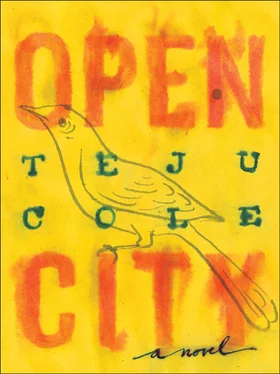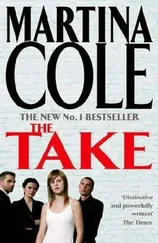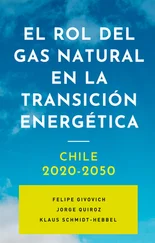Then, out of a calmness that seemed to have all in the auditorium holding their breaths, the sweet, hymnlike opening of the final movement, carried by the string instruments, filled the hall. I was stunned: I had never before noticed how similar the melody in this movement was to “Abide with Me.” And that revelation steeped me in the deep sorrow of Mahler’s long but radiant elegy, and I felt I could also detect the intense concentration, the hundreds of private thoughts, of the people in the auditorium with me. How strange it was that, almost a hundred years ago, right there in Manhattan, just a short walk away from Carnegie Hall, at the Plaza Hotel, on the corner of Fifty-ninth Street and Fifth Avenue, Mahler had been at work on this very symphony, aware of the heart condition that would soon take his life.
In the glow of the final movement, but well before the music ended, an elderly woman in the front row stood, and began to walk up the aisle. She walked slowly, and all eyes were on her, though all ears remained on the music. It was as though she had been summoned, and was leaving into death, drawn by a force invisible to us. The old woman was frail, with a thin crown of white hair that, backlit by the stage, became a halo, and she moved so slowly that she was like a mote suspended inside the slow-moving music. One of her arms was slightly raised, as though she were being led forward by a helper — as though I was down there with my oma, and the sweep of the music was pushing us gently forward as I escorted her out into the darkness. As she drifted to the entrance and out of sight, in her gracefulness she resembled nothing so much as a boat departing on a country lake early in the morning, which, to those still standing on the shore, appears not to sail but to dissolve into the substance of the fog.
Mahler had worked, without self-pity, through his illness, through the catalogue of sufferings, and in his gargantuan compositions had worked elegy finely into elegy. He liked to say, with characteristic gallows humor, that Krankheit ist Talentlosigkeit —illness is a lack of talent. He made his own death matter — there was one of his great talents — so that it almost seemed as though he really died like a dragon breaking down a wall, as is said of certain great Chinese poets. His funeral was to be in Vienna, in Grinzing Cemetery. And so, after he’d gotten the definitive sentence of death — a streptococcal blood infection, secondary to an earlier diagnosis of infective endocarditis, a condition devastating to the heart valves — from Dr. Fraenkel, who had arrived at the diagnosis in consultation with Dr. Emanuel Libman, chief of the medical service at Mount Sinai Hospital, Mahler had undertaken the arduous final journey home. He’d gone first by boat from New York to Paris, where he unsuccessfully tried an experimental serum at the Institut Pasteur, then by train, in great discomfort, to Vienna, where the crowds welcomed and extolled him, whom before they had treated so cruelly, following his motorcade as though he were Virgil returning to Rome to die. And die he did, a week later, at midnight on the eighteenth of May, 1911.
The music stopped. Perfect silence in the hall. Simon Rattle was stock-still on the podium, his baton still in the air, and the musicians, too, were still, their instruments up. I looked around the hall, at the illuminated faces, all flooded with that silence. The seconds stretched on. No one coughed, and no one moved. We could hear the faint sound of traffic in the far distance outside the hall. But inside it, not a sound; even the hundreds of racing thoughts had stopped. Then Rattle brought his hands down, and the auditorium exploded with applause.

ONLY WHEN THE DOOR CLICKED BEHIND ME DID I REALIZE what I had done. I had used the emergency exit, which led directly from the fourth tier to the fire escape outside the building. The heavy metallic door that had just slammed shut had no external handle: I was locked out. There was to be no respite from the rain and the wind because I had also left my umbrella in the concert hall. And, added to all this was the fact that I was standing not on an exit staircase, as I had hoped, but on a flimsy fire escape, locked out on the unlit side of Carnegie Hall on a stormy evening. It was a situation of unimprovable comedy.
The slick wirework was all that separated me from the street level of the city, some seventy feet down. The lights directly below were visible between my feet, and my head and coat were already wet. My fellow concertgoers went about their lives oblivious to my plight. It was farther than the distance of a shout, even in clement weather; at night, with rain lisping through the streets, it was futile. And a few minutes before this, I had been in God’s arms, and in the company of many hundreds of others, as the orchestra had sailed toward the coda, and brought us all to an impossible elation.
Now, I faced solitude of a rare purity. In the darkness, above the sheer drop, I could see the lights of Forty-second Street flashing in the visible distance. The railings of the fire escape, which were probably precarious at the best of times, were slicked with water and inimical to the grip. I moved carefully, taking step after premeditated step. The wind pushed around the building noisily, and I took some grim comfort in the idea that, if I were to fall from that height, there was no question of being maimed: death would be instant. The thought calmed me, and I stepped and slid down the metal steps, a few modest inches at a time. My high-wire act continued for long minutes in the darkness. And then I saw that the fire escape went only halfway down the building, ending abruptly at another closed door. The rest of the way down to the ground, some two flights, was air alone. But luck was with me: this second door had a handle. I tried it and it opened, into a hallway.
Before I entered the door, holding it open with relief and gratitude, it occurred to me to look straight up, and much to my surprise, there were stars. Stars! I hadn’t thought I would be able to see them, not with the light pollution perpetually wreathing the city, and not on a night on which it had been raining. But the rain had stopped while I was climbing down, and had washed the air clean. The miasma of Manhattan’s electric lights did not go very far up into the sky, and in the moonless night, the sky was like a roof shot through with light, and heaven itself shimmered. Wonderful stars, a distant cloud of fireflies: but I felt in my body what my eyes could not grasp, which was that their true nature was the persisting visual echo of something that was already in the past. In the unfathomable ages it took for light to cross such distances, the light source itself had in some cases been long extinguished, its dark remains stretched away from us at ever greater speeds.
But, in the dark spaces between the dead, shining stars, were stars I could not see, stars that still existed, and were giving out light that hadn’t reached me yet, stars now living and giving out light but present to me only as blank interstices. Their light would arrive on earth eventually, long after I and my whole generation and the generation after me had slipped out of time, perhaps long after the human race itself was extinguished. To look into those dark spaces was to have a direct glimpse of the future. I gripped the rusted railing of the fire escape with one hand and tightened my hold on the open door with the other. The night air clipped my ears. I looked down, a steep drop, and the blurred yellow rectangle of a taxicab sped by, and then an ambulance, its wailing reaching me from seven floors below, and stretching out as it headed toward Times Square’s neon inferno. I wished I could meet the unseen starlight halfway, starlight that was unreachable because my entire being was caught up in a blind spot, starlight that was coming as fast as it could, covering almost seven hundred million miles every hour. It would arrive in due time, and cast its illumination on other humans, or perhaps on other configurations of our world, after unimaginable catastrophes had altered it beyond recognition. My hands held metal, my eyes starlight, and it was as though I had come so close to something that it had fallen out of focus, or fallen so far away from it that it had faded away.
Читать дальше













